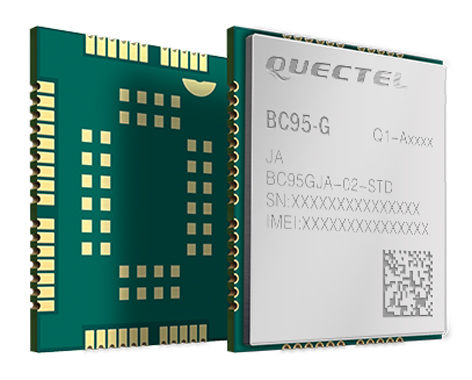Telefónica certifies Quectel module for subscription swap use
- January 23, 2020
- imc

Telefónica has certified Chinese firm Quectel Wireless’ BC95-G NB-IoT module that provides subscription swap capabilities.
Quectel Wireless has been collaborating with Telefónica and, as a result, Quectel has received certification of its LTE Cat NB2 (NB-IoT) module, which includes subscription swap capabilities based on GSMA v3.2 standards.
These subscription swap capabilities are useful in smart metering (water, gas and electricity) and smart cities for waste management, parking, streetlight, pollution monitoring and more. For example, smart meters need to be deployed for ten to 15 years and are often located in hard to reach locations, typically making the service cost of replacing subscriptions high.
Additionally, subscription swap technology can help simplify the deployment, management and security implementation of future-proof smart meter devices.
“After close collaboration with Telefónica teams, our BC95-G module is reliable, well tested and proven in its capabilities for operating on Telefónica’s NB-IoT network,” said Norbert Muhrer, Quectel’s president and CSO. “Now customers can accelerate their IoT deployments worldwide.”
The BC95-G is an NB-IoT module that supports multiple frequency bands of B1, B3, B5, B8, B20 and B28 with low power consumption. Designed for size sensitive applications and compatible with Quectel GSM and GPRS M95 and LPWA BC95 modules, it provides a flexible and scalable platform for NB-IoT use cases.
Telefónica says it is working with customers on smart metering and smart city projects to be deployed as a result of this certification.
Quectel Wireless supplies cellular and GNSS modules, with a portfolio covering the most recent wireless technologies of 5G, LTE, LTE-A, NB-IoT, LTE-M, UMTS, HSPA+, GSM, GPRS and GNSS. As a professional IoT technology developer and cellular module supplier, it can provide one-stop services for IoT cellular modules. Its products have been widely applied in IoT and M2M fields including smart payment, telematics, transport, smart energy, smart cities, security, wireless gateways, industry, healthcare, agriculture and environment monitoring.





